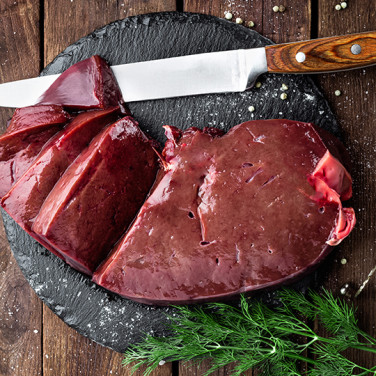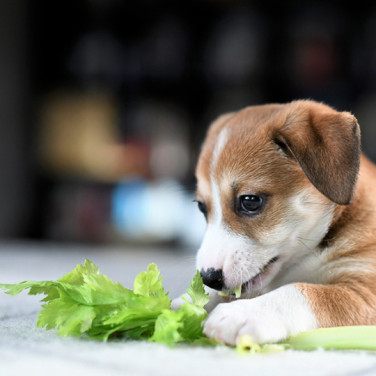FOOD
Can Dogs Eat Pomegranates? Are Pomegranates Good or Bad for Dogs?
페이지 정보
본문
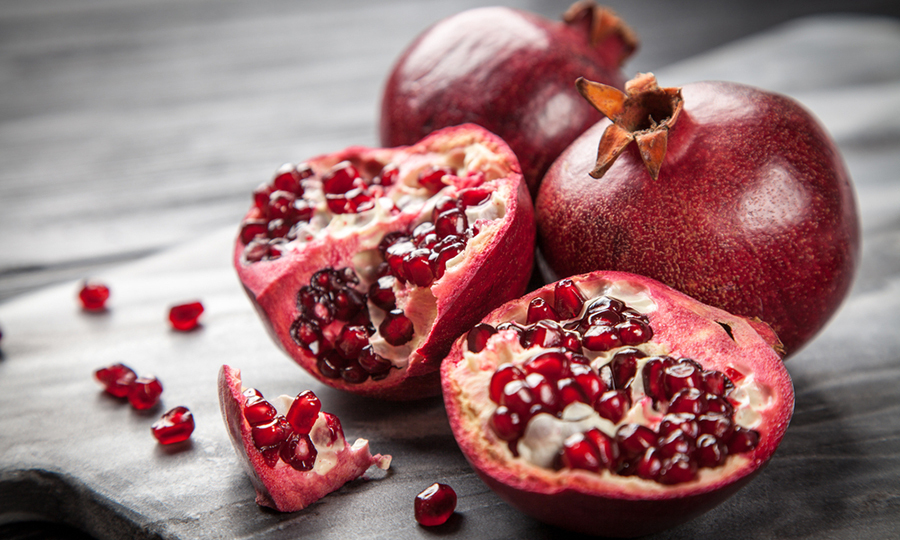
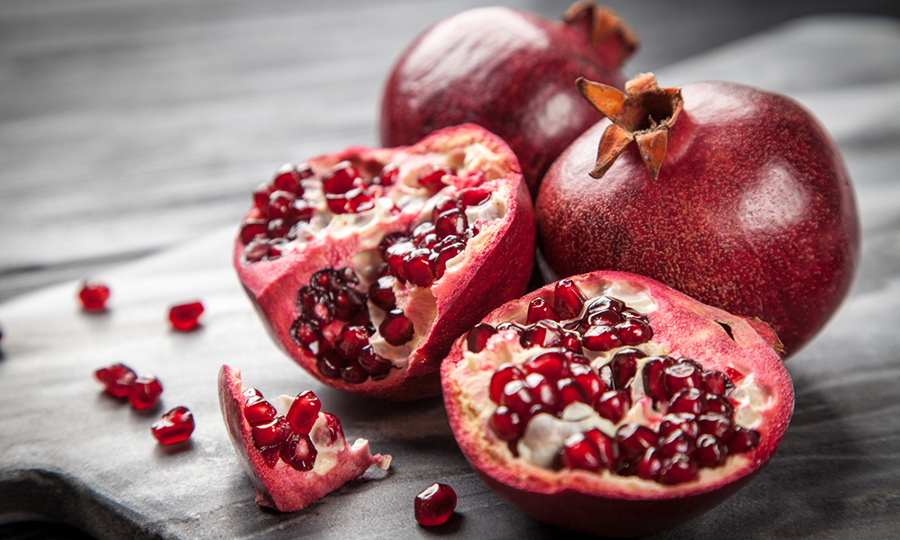
Can dogs eat pomegranates? HMM..
While pomegranates are not necessarily toxic to dogs, it is widely suggested to avoid sharing pomegranates with your pets due to their acidity and high tannin content. A dog may experience digestive upset and gastrointestinal distress if small amounts of pomegranate are consumed. Pomegranates are rich in many nutrients that would greatly benefit a pet’s diet, but experts caution against this due to the associated risk. It is not recommended to feed raw pomegranate to your dog. You may notice pomegranate listed as an ingredient or as a supplement specifically for dogs. Direct feeding may come with risks but certain pomegranate extracts can be safe for dogs to enjoy the benefits from.
Can I give pomegranates to my dog?
Pomegranates are generally considered safe for dogs to consume, unlike certain fruits such as grapes which can be very harmful. The seeds found within pomegranate kernels are non-toxic to dogs as well, and some experts believe that a very small amount of seeds can be beneficial due to its richness in antioxidants, fiber, and vitamins.
However, despite these potential health benefits, we would not recommend feeding pomegranate to your dog. This is because consuming an excessive amount of the seeds can result in digestive issues and other side effects that may negatively impact your dog's health.
Reasons for not recommending pomegranate for dogs
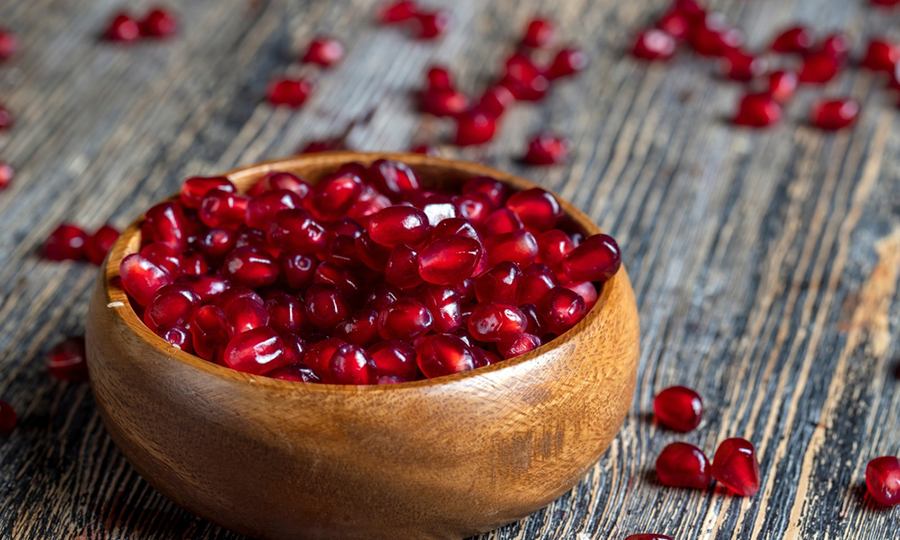
Caution and risks of feeding pomegranates to your dog:
-
High acidity
Pomegranate is a fruit that is known for its high acidity. High acidity can be harmful to dogs and may cause various gastrointestinal issues such as heartburn, nausea, vomiting, and gastric reflux.
-
High fiber content
When consumed in moderation, fiber can promote healthy digestion and help with constipation. However, exceeding the amount of fiber that a dog should digest may lead to side effects. The peel, in particular, contains a high amount of fiber, making it difficult to digest. If your dog eats an excessive amount of fiber, they may experience symptoms such as stomach pain, diarrhea, and vomiting.
-
Hard seeds
Hard seeds can be problematic for dogs in two ways. Firstly, they can be challenging to digest and may lead to stomach upset. Secondly, if your dog chews on the seeds, it can cause damage to their teeth.
-
Choking hazard
Pomegranate seeds and peels can potentially cause choking in the esophagus or intestinal obstruction, particularly if consumed in large quantities at once.
-
Tannin
Consuming a certain amount of tannin can lead to the binding of protein in your dog's digestive system, hindering the absorption of nutrients. While not all dogs react negatively to tannins, it is important to exercise caution.
The consumption of pomegranates by dogs can lead to health risks associated with the digestive system. The main symptoms that emerge when dogs eat pomegranates include vomiting, diarrhea, and abdominal pain.
Can I feed my dog food or treats containing pomegranate extract?
It is possible to find dog food or treats that contain pomegranate extract. This extract is rich in antioxidants, which are known to help prevent inflammation and cancer. Fortunately, there are no harmful ingredients in these foods that could adversely affect your dog's health. Therefore, you can safely feed them to your furry friend. However, it's important to note that human pomegranate supplements may contain xylitol, which can be harmful to dogs. Always be sure to read the label of any human supplements or foods for any dangerous ingredients to your puppy.
Nutrients of pomegranate for dogs
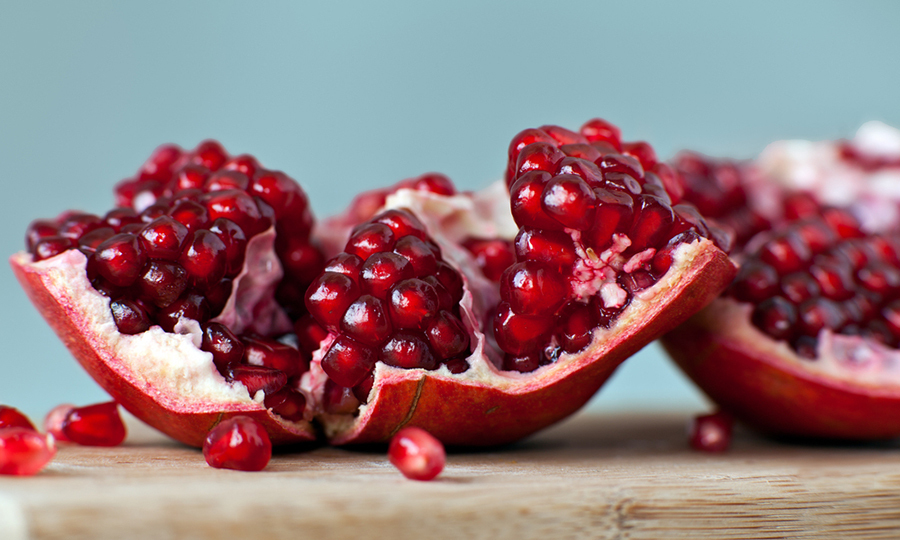
Nutritional properties of pomegranate that can benefit your dog
-
Vitamin C
Vitamin C is an antioxidant that is abundant in pomegranates and helps prevent aging, cancer, and heart health in dogs.
-
Folate
In your dog's body, folic acid plays a vital role in regulating tissue growth, blood production, and immune system function.
-
Fiber
Fiber helps your dog's digestive system process food and aid digestion.
-
Vitamin K
Vitamin K regulates your dog's body's ability to clot blood, reducing the risk of bleeding if your dog is injured.
Still considering feeding pomegranate to your dog?
The risk of digestive upset mostly comes from the choking hazard in the peel and its seeds, as well as the high levels of tannin in the flesh of the fruit. The best way to serve pomegranate to your pet is by removing the skin and juicing only the fruit. Using a very small amount of the juice extract as a meal topper. You can also crush the seeds and feed them in moderation. If your pet ever begins to show any signs of digestive upset such as vomiting or discomfort, it is best to discontinue feeding and consult with a veterinarian.
What should I do if my dog ate some pomegranate without my knowledge?
If your dog has ingested any parts of the pomegranate, you will want to look out for these symptoms:
Depending on how much was ingested before you noticed, your dog may be fine. It is important to provide plenty of water and monitor their condition. If any of the symptoms appear or worsen, it is recommended to visit a veterinary hospital for treatment. If your dog has ingested a significant part of the pomegranate peel, there is a risk of choking or intestinal obstruction. In this case, it is recommended to seek immediate veterinary attention for an examination.
Curious if you can feed your dog other foods besides pomegranate?
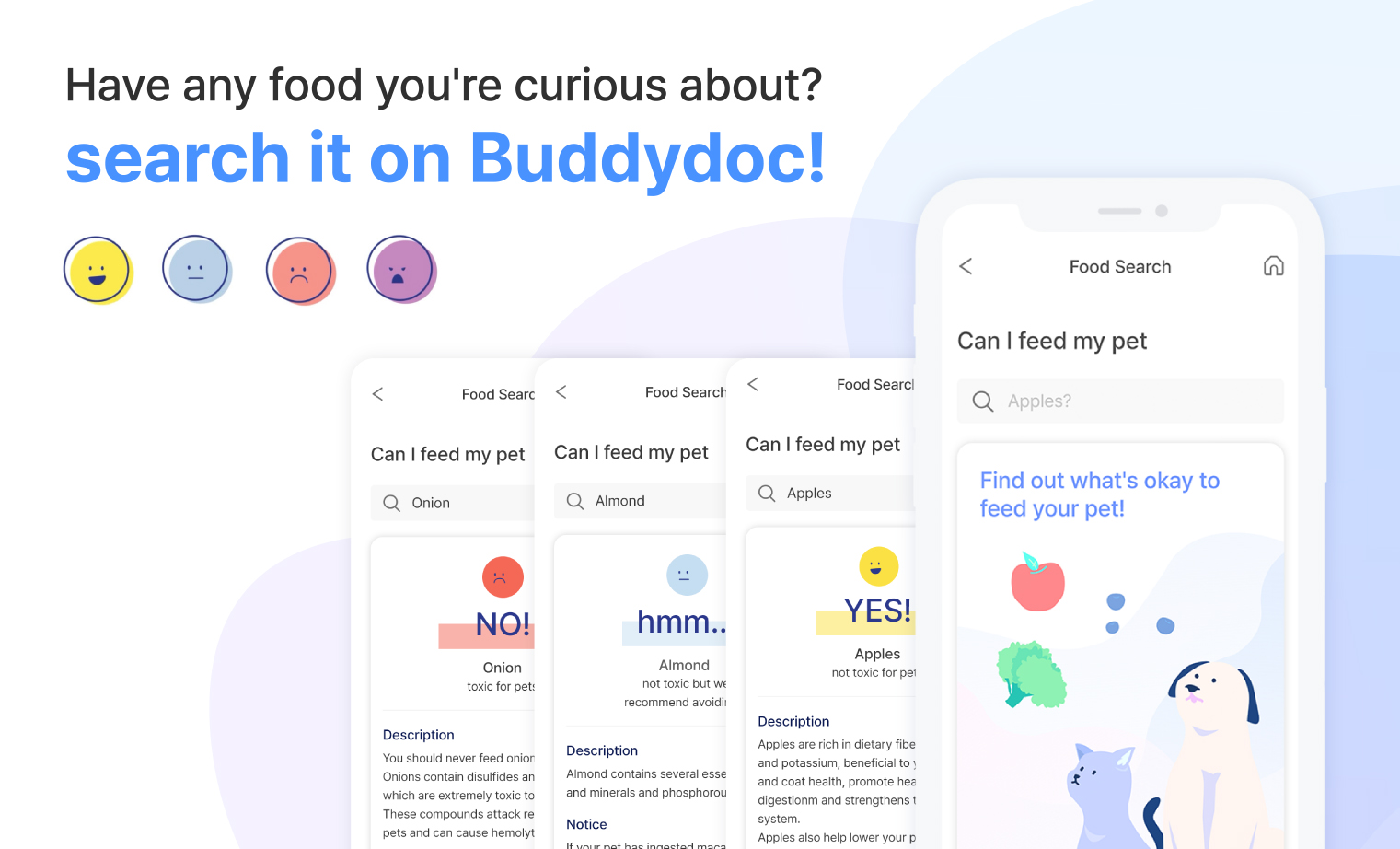
Does your dog also look up at you with those puppy dog eyes whenever you are snacking on something? You know foods like chocolates should not be shared with them but do you search the Internet every time if it’s okay to share a bite of whatever you are eating? The Buddydoc Food Dictionary provides information on hundreds of foods that we consume and informs you whether it is safe for them to consume and the nutritional benefits for your pet. If you're curious about other foods, try searching on Buddydoc!




